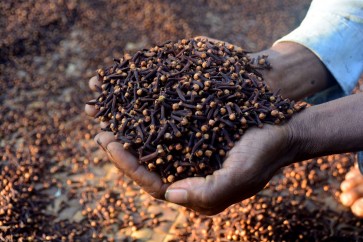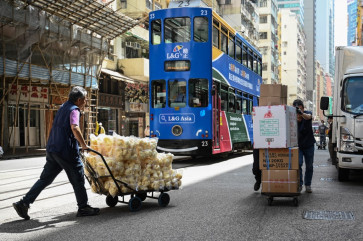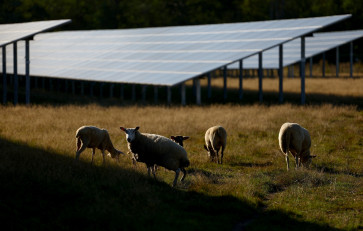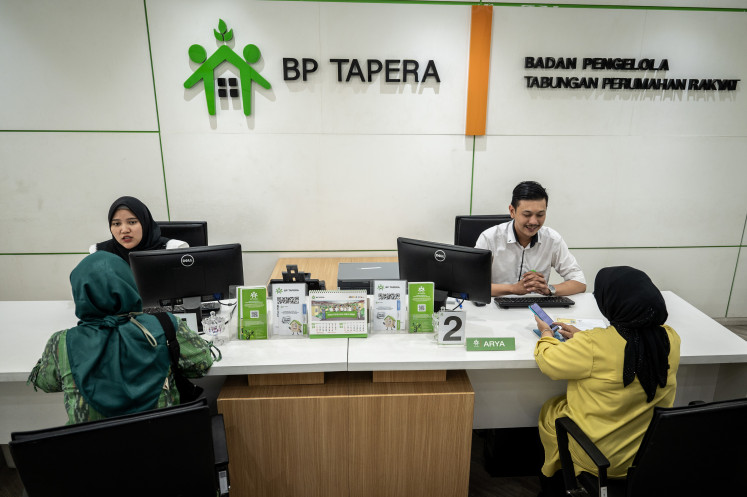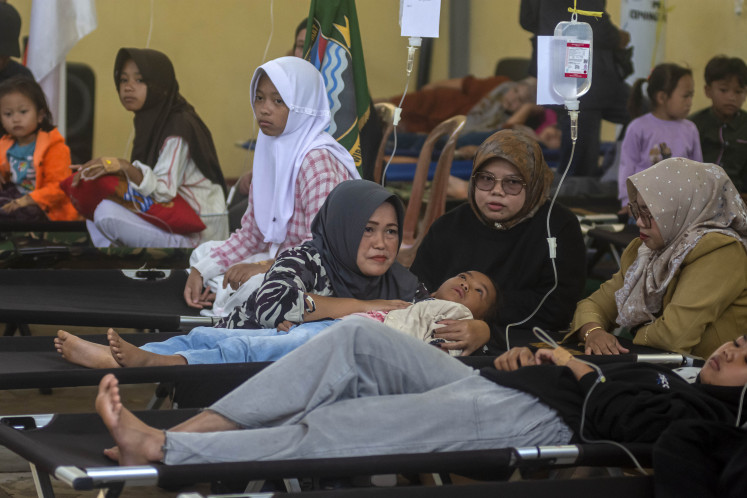Popular Reads
Top Results
Can't find what you're looking for?
View all search resultsPopular Reads
Top Results
Can't find what you're looking for?
View all search resultsJapan mulls joining cooperation on SDGs in Southeast Asia
Japan is looking into the possibility of joining a trilateral cooperation agreement on sustainable development involving China, ASEAN and the United Nations Development Program (UNDP) as China is pushing for more concrete trilateral collaboration in Southeast Asia
Change text size
Gift Premium Articles
to Anyone
J
apan is looking into the possibility of joining a trilateral cooperation agreement on sustainable development involving China, ASEAN and the United Nations Development Program (UNDP) as China is pushing for more concrete trilateral collaboration in Southeast Asia.
A discussion about the plan had taken place recently, officials said.
“We are very glad that the trilateral cooperation of China-ASEAN-UNDP on sustainable development is entering a new phase of pragmatic cooperation now,” Jiang Qin, chargé d’affaires at the Chinese Mission to ASEAN, said during the launch of a report on the UN’s Sustainable Development Goals (SDGs) in Jakarta on Monday.
“We warmly welcome Japan to participate in the relevant cooperation, so as to expand trilateral cooperation to four-party cooperation.”
She said the three parties — China, ASEAN and the UNDP — agreed to carry out practical projects on sustainable development as soon as possible and planned to host their fourth symposium in Hanoi in September.
The launch of the report on Monday was also attended by Japanese Ambassador to ASEAN Kazuo Sunaga.
However, Sunaga’s office said the possibility of four-party collaboration had not reached anything concrete yet.
Haoliang Xu, assistant secretary-general of the UN and regional director for Asia and the Pacific at the UNDP, meanwhile said there were various ways to localize their numerous goals, which include those on policy and institutional frameworks, data ecosystems, multistakeholder engagement and financing, as well as innovation.
“We are happy to take forward our partnership with ASEAN, China and hopefully also Japan, as we look to roll out SDG localization programs across ASEAN, for example in Vietnam and Laos,” he said.
In Vietnam, for instance, the UNDP was planning to support plastic waste management in Da Nang, a fast-growing tourist destination located on the coast of the South China Sea, he added.
Meanwhile in Laos, his agency was aiming to help citizens make use of fresh opportunities from the Kunming-Vientiane high-speed railway by planning to provide a grant scheme to empower local governments to improve public services such as health, education, water and sanitation and complementary infrastructure.
“This means communities will be better equipped to implement small-scale projects based on their identified needs, complementing the large-scale ones under the Belt and Road Initiative [BRI], and mitigate any livelihood and environmental implications,” Xu said.
Qin, meanwhile, argued that China’s second Belt and Road Forum last month had resulted in some concrete Chinese initiatives concerning the SDGs with various UN agencies, including the UNDP.
She argued that the spirit and goals advocated by the BRI were aligned with the UN’s 2030 development agenda and that countries must take a development-oriented approach and strengthen cooperation in international development to help them eradicate poverty and achieve the SDGs.
She said there were various proposals and programs under the BRI framework to help countries eradicate poverty and achieve sustainable development, including the BRI Sustainable Cities Alliance, BRI International Green Development Coalition and BRI Environmental Big Data Platform.
“We will continue to implement the Green Silk Road Envoys Program and work with relevant countries to jointly implement the Belt and Road South-South Cooperation Initiative on Climate Change,” she said.
Kung Phoak, ASEAN deputy secretary-general for sociocultural community, said financing, resources and institutional capacity were among the main challenges for ASEAN countries looking to achieve the SDGs.
“Nevertheless, [ASEAN countries] are on the right path in terms of incorporating the goals of the SDGs into their national development plans and in mobilizing resources and engaging different stakeholders to help. […] We shouldn’t think that it is only the job of the government,” he said.


